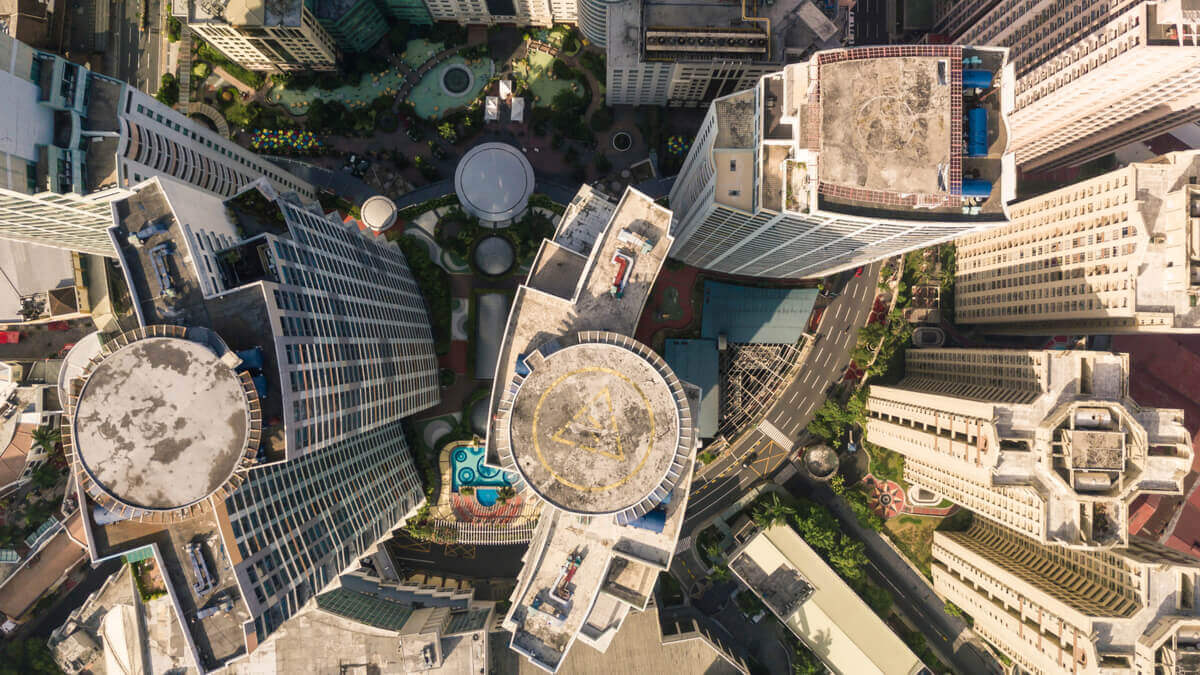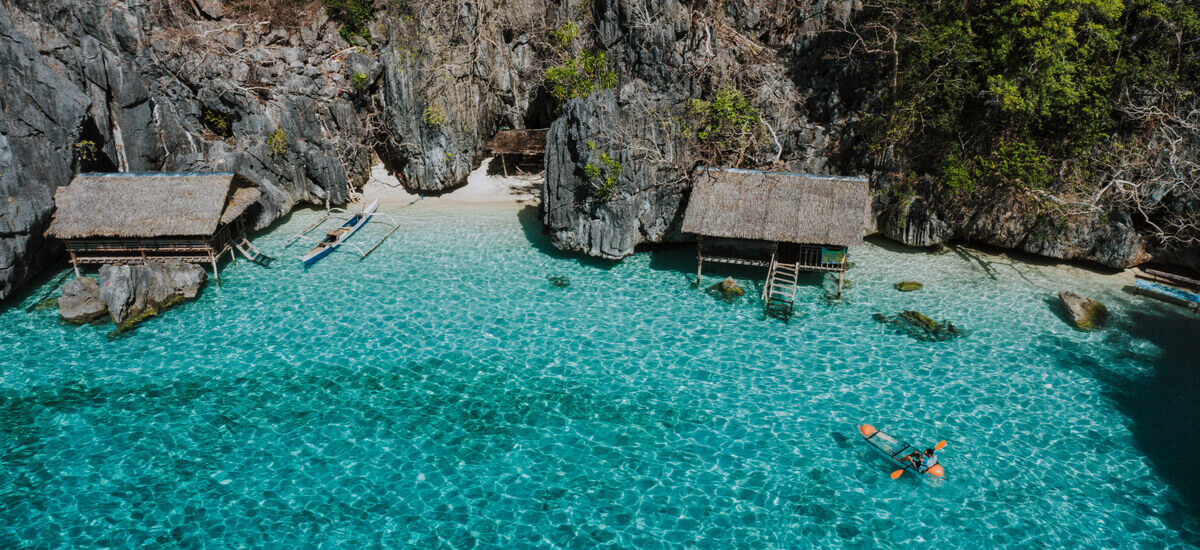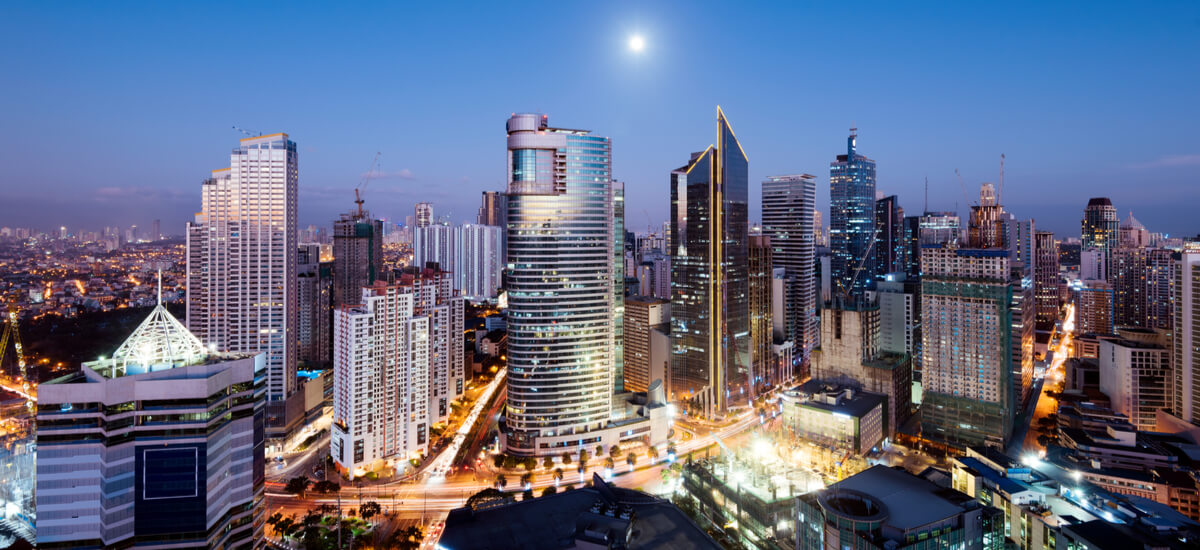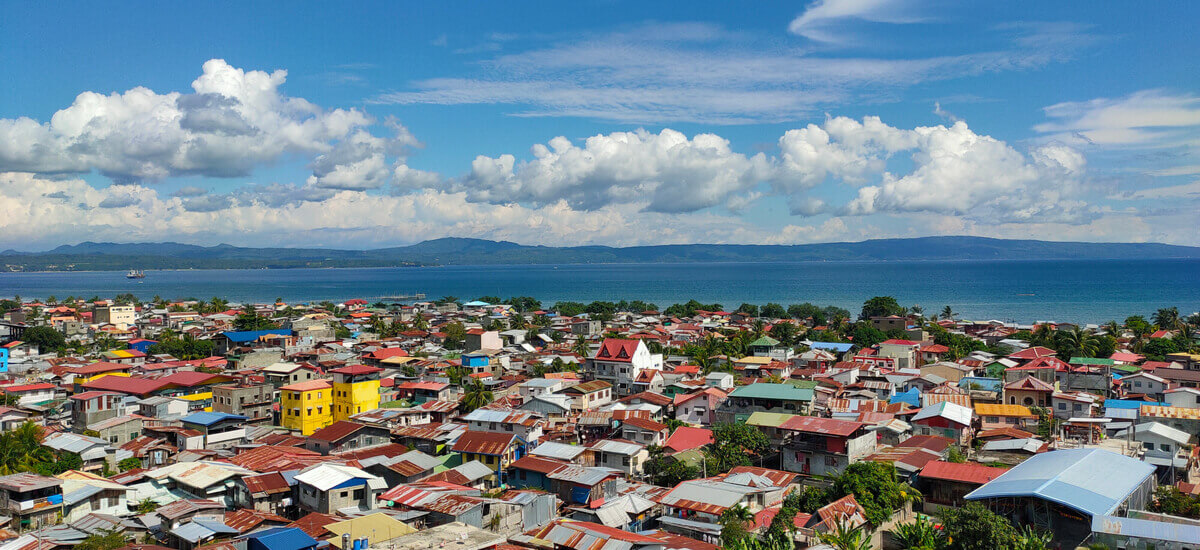How much is a security deposit? 2025 guide
Everything you need to know about security deposits

The Philippines is famous for its friendly community, tropical climate and stunning beaches. Spreading over 7000 islands, between the Pacific Ocean and the South China Sea, it’s also known for an extremely reasonable cost of living, making it an ideal expat destination.
If you’re thinking of making the move to the island nation, whether it be for a change of setting, retirement or perhaps to start a business, then you’ll need to know a bit about how the process of buying a house in the Philippines will work. Read on, so you don’t miss any of the basics.
| 📑 Table of Contents |
|---|
Like most places, the property market in the Philippines reflects the economy. During the 2010s house pricing faced a sharp rise, even doubling value in some regions, such as Makati¹.
But, due to economical and political reasons, the housing market started to slow down at the end of the decade. The Covid-19 pandemic attenuated the situation, with prices declining in 13.2% (-16.1% when adjusted to inflation)¹.
It’s safe to say that the Philippine economy is standing on shaky ground, so, if you’re considering investing in property in the country, it’s crucial to know the market well, and have local help you can trust¹.
Foreigners are subject to some restrictions when it comes to buying property in the Philippines². It’s possible to buy a condo or flat, so long as the block remains at least 60% locally owned, but it is more difficult to own land³. Basically this means that expats can own a building but not the land on which it stands.
The Philippines accepts dual citizenship⁴, thus people born in the Philippines, who later on naturalized as American citizens are still eligible to buy property and land in the country.
In case the person in question opted to abdicate their Philippine citizenship, then they shall be treated as foreigners — in which case restrictions to land ownership will apply.
Additionally, for Americans entitled to Philippine citizenship — that opt to follow through with the naturalization process — local laws will apply as to any other national from the Philippines.

Buying a property in the Philippines can feel quite different to buying a home in Europe or North America.
Foreign buyers are subject to restrictions, and the market is less regulated. It’s essential that you get the right, qualified local help to ensure that the property you're buying is being sold legally.
Once you’ve found someone to help you out, here are the steps you’ll need to follow³:
Step 1. Choose the property you wish to purchase.
Step 2. Go after alternatives for getting a mortgage. You can check with local banks, or use an international mortgage lender based in the US.
Step 3. Agree with the seller on the sales price and, with the help of a lawyer, create and notarize the Deed of Absolute Sale (DOAS).
Step 4. Get the Land Tax Declaration from the Bureau of Internal Revenue (BIR) and submit it to the relevant Assessor’s office.
Step 5. Pay for the real estate tax on the city treasury.
Step 6. The Assessor’s office will analyse the value of the house.
Step 7. You’ll have to pay for the transfer taxes. This has to be done to the Assessor’s office.
Step 8. Seller pays for the Capital Gains tax and Documentary Stamp tax (to the BIR).
Step 9. The old property title — under the name of the seller — is replaced by the new one on the Registry of Deeds (RD).
Step 10. You’ll get a copy of the new deed and will need to request the Assessor’s office for tax declaration documents.
Step 11. You made it! Sit back and enjoy your new Philippine home 🎉
This process should take around 40 days to be completed.
When it comes to investing in overseas property, it might seem like an option to look into buying land and building your dream home from scratch.
But in the Philippines this might be a limited alternative, as a lot of regulations are in place to preserve the country’s natural resources and environment.
The short answer to this question is no³. Unfortunately, due to very protective laws, foreigners can only buy a restricted set of properties, and are not allowed to purchase lots or land.
There are alternatives if you’re determined to own land, such as buying it via a corporation, or through inheritance in case you have a Filipino spouse.
If you’re really inclined on finding out the steps in buying a lot in the Philippines, it’s better to reach out to a local lawyer or real estate specialist, as they might be able to offer you further guidance.
After looking into international real estate, you might be wondering how to send money to pay for your overseas property. Wise offers you a quick, safe and transparent solution for sending money to the Philippines.
You get the mid-market exchange rate for your payments and see how much it’s charged for the transfer before sending the money from your bank.
With the Wise Multi-currency Account you can also hold, send and spend money in over 40 countries, and receive like a local in 9 different currencies.
Please see the Terms of Use for your region or visit Wise fees & pricing for the most up-to-date information on pricing and fees.
If you’re thinking of buying a property in the Philippines, the price you pay will be influenced significantly by where you want to live and which type of property you wish to acquire.
Read on for how much a house will cost you in the Philippines, as well as which taxes and fees you’re expected to pay when purchasing a property.
As mentioned below, location plays a huge role when it comes to house pricing. Here you can find and overview of average property prices in some of the most popular Philippine cities:
| City | Price (sqft) in city center | Price (sqft) outside of city center |
|---|---|---|
| Manila⁵ | 367.09 USD | 263.45 USD |
| El Nido⁶ | 294.27 USD | 264.47 USD |
| Quezon⁵ | 159.37 USD | 65.28 USD |
| Davao⁶ | 242.12 USD | 132.18 USD |
Other than the purchase price for the house, you might want to look up which taxes and fees are applicable, as they can influence how much it’ll cost you in the end.
Below you’ll find some of the most common property taxes and fees:
| Type of fee | Amount (%)³ |
|---|---|
| Local transfer tax | 0.5% - 0.75% |
| Notary fees | 1% - 2% |
| Registration fees | 1% |
| Exchange rate | Variable |
Real estate agent fees (3% - 5%), capital gains tax (6%) and documentary stamp tax (1,5%) are applicable for the previous owner. Keep this information in mind in case you ever wish to sell your property.
|
|---|
Save on international payments
Now that we’ve been through the steps of purchasing a property, as well as pricing and the fees you’ll have to pay, we can give you some more practical tips on how and where to go after your Philippine home.
Whether you’re looking for large cities or beachfront properties, the Philippines has it all. When looking for a starting point for your property search, here are some options for you:

The Philippines capital, Manila, houses 1.8 million people, making it the second largest city in the country⁷.
If you’re looking for an expat lifestyle and work opportunities, this might be the right city for you.
It’s also worth checking the Metro Manila area, which encompasses Manila, Quezon and several other cities, one of the largest metropolitan areas in Asia⁸. There you should be able to find many available properties in a very urban area.

Have you ever dreamed of living an island life? If we’re talking about bucket list destinations, it’s likely the name Palawan rings a bell.
With almost a million inhabitants and an increasing tourism market⁹, Palawan is a popular place for foreign property investors. The UNESCO heritage site has loads of options of beaches, natural reserves and activities, so you’ll never get bored.

If you’re looking for a large city, Quezon is the place to go to. With almost 3 million inhabitants, Quezon is the largest city in the Philippines¹⁰.
It also served as the country’s capital between the 40s and 70s and it’s home to two of the top Philippine universities¹¹.
When you think of variety, Quezon is the city for you.

Located in the south, Davao is a popular option for expats. Although this is the third largest city in the Philippines. The population of 1.6 million¹² and relatively large area make it a much less densely populated, and therefore a more liveable, place.
The Philippines has a well developed real estate sector with a wide choice of apartments, condos and houses.
Foreigners can buy condos, as long as the ownership of the block remains 60% local, but it's harder to own land as a foreigner in the Philippines. Naturally, you'll find a good stock of flats and condos available in built up areas and cities, especially.
You can also lease land on a long term lease, and build a home. However, if you want to build your dream home yourself, you should talk to your lawyers about how this could be achieved.
It’s a smart idea, though not required by law, to get a survey done on any property you choose, or any land you decide to lease, before you commit. This isn’t necessarily standard practice, so you should ask your lawyer about how to find a local surveyor you can trust.
There are several avenues you can take to find land or property in the Philippines, however, you’re strongly recommended to use a local property agent you can trust.
Buying a house in the Philippines can be complicated, and there are restrictions on the way that foreigners can purchase both land and property. This means it’s easy enough to fall foul of scams and pitfalls.
A specialist agent can also offer helpful advice and insight into the local market. Although, there will be a fee to pay for this service, they'll help you avoid costly mistakes, and might be able to negotiate with the seller better than you can alone.
Nevertheless, you should make sure you’re clear on what you’ll get for your money, as both the packages and prices vary wildly.
| 🏡 Here are some websites to help get started on your research |
|---|
Now that we’ve been through the most important aspect to look out when buying property or land in the Philippines, you’re ready to go after your new home.
Buying property abroad is a lengthy process, so make sure you create a free Wise account. This way, international money transfers are one less thing for you to worry about.
| Read further: 20 of the cheapest places to live in the world |
|---|
Sources:
Sources checked on 12.17.2021
*Please see terms of use and product availability for your region or visit Wise fees and pricing for the most up to date pricing and fee information.
This publication is provided for general information purposes and does not constitute legal, tax or other professional advice from Wise Payments Limited or its subsidiaries and its affiliates, and it is not intended as a substitute for obtaining advice from a financial advisor or any other professional.
We make no representations, warranties or guarantees, whether expressed or implied, that the content in the publication is accurate, complete or up to date.

Everything you need to know about security deposits

Learn all about different ways to get an overseas property mortgage as an American and gain unique insights to prepare yourself for the whole process.

Get a full overview of the best property management software systems for small landlords to easily track and manage their overseas property.

How to buy your first rental property overseas? Here's a detailed guide that can help you understand the challenges and steps for making an investment.

What are the best property management software systems for managing student housing? Take a look at our list and choose the most suitable option for you.

Are you thinking about making smart property investment decisions and wondering how rental yield is calculated? Have a look at our guide to find out.